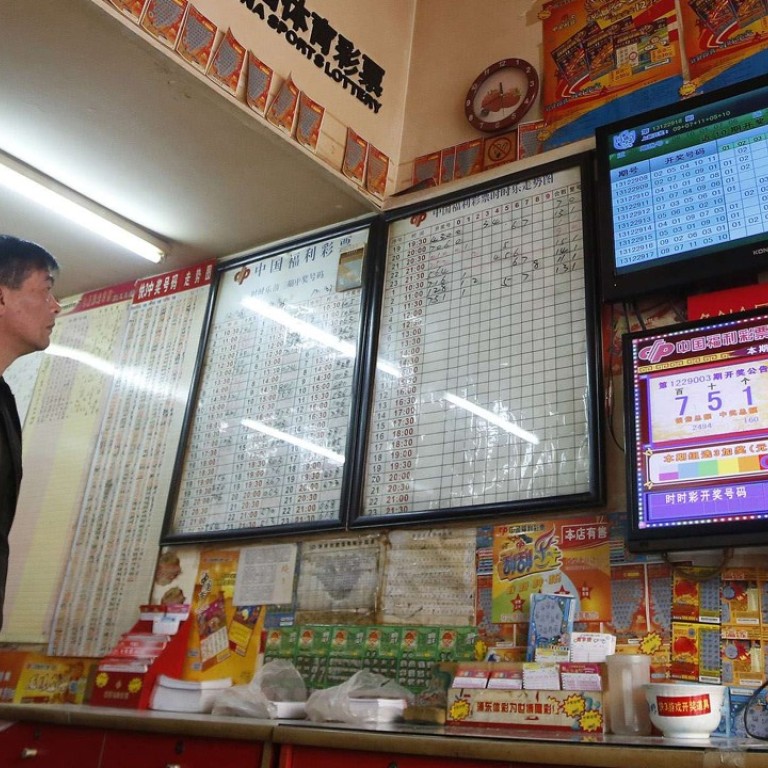
China’s new inconvenient truth: how much lottery money corrupt officials stole
- Authorities deny widespread rumours that the equivalent of US$19.5bn had been embezzled, but say it would be ‘inconvenient’ to give correct figures
- Latest developments in corruption scandal trigger fresh public outcry, with people questioning whether the true figure is greater
“Ever wonder how come you have never won the lottery? Because the prize money has all been pocketed by corrupt officials!”
This was the latest meme making the rounds on China’s social media, as members of the public demanded that the government disclose how much money had been taken in one of the biggest scandals to hit the country’s fast-growing lottery industry.
On Tuesday the authorities scrambled to deny widespread rumours that as much as 136 billion yuan (US$19.5 billion) had been embezzled but said it would be “inconvenient” to reveal the true sum – drawing the ire and mockery of internet users.
“Is it inconvenient … because the amount is even larger than what the rumours claimed?” read the most liked comment on the social network Weibo.
Shanghai’s jailed top prosecutor ‘implicates 100 other officials in corruption case’
In mainland China, the official welfare lottery and sports lottery are the only forms of gambling allowed by the Communist Party.
With ticket booths all over the country, their combined sales topped 400 billion yuan last year, making it the world’s second largest lottery market after the US.
But beneath the rapid growth, the state-run system is riddled with problems, including deep-rooted corruption that has prompted the downfall of four lottery officials, plus a minister responsible for oversight.
The scandal first erupted early last year, when Li Liguo, the then civil affairs minister, was demoted along with his deputy for allowing “systematic corruption” to happen at agencies under his watch, which include the welfare lottery operator.
Two senior officials who had previously been in charge of the China Welfare Lottery Management Centre were also put under investigation for bribery, with another pair later being subjected to a similar investigation.

The scandal attracted renewed attention last week after the country’s top anti-corruption watchdog, the Central Commission for Discipline Inspection (CCDI), released a video of the four lottery officials “confessing” their wrongdoings.
“Corruption in the lottery system has had a huge, irreparable impact … It is a sheer disaster,” said Feng Lizhi, a former deputy head of the lottery centre, in the video.
The video was played at a meeting of the Ministry of Civil Affairs last week as a warning and a lesson for cadres, according to the CCDI.
“The lottery funds are donated cent after cent by buyers. What must millions of lottery buyers think when problems occur in its use and management?” said a graft buster stationed at the ministry.
Chinese officials face disciplinary action after ignoring six direct orders from Xi Jinping
According to regulations, 50 per cent of the welfare lottery’s total revenue from ticket sales should go to jackpots and prizes.
A further 35 per cent is earmarked for social welfare projects while the remaining 15 per cent covers operating and administrative costs.
But lax oversight has long been an issue.
In 2015, a national audit looked at what had happened to 65.8 billion of lottery funds over a three-year period and found that a quarter of that sample sum had been misappropriated.
The funds were originally intended for social welfare projects, but ended up being used for other purposes that range from building properties to handing out bonuses.

